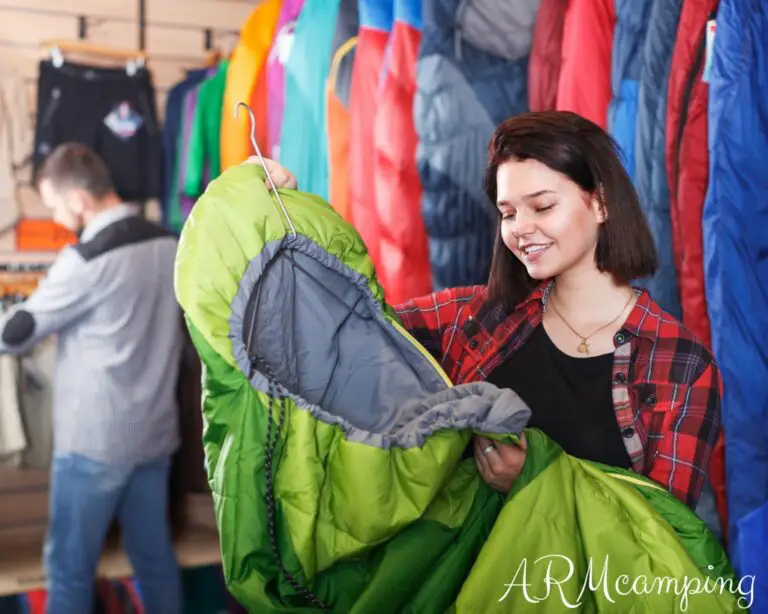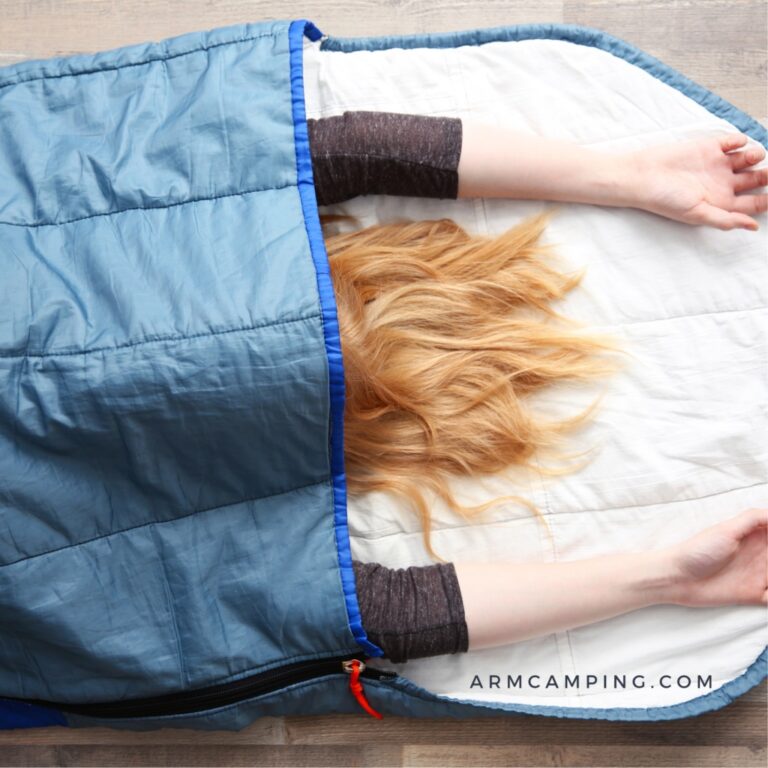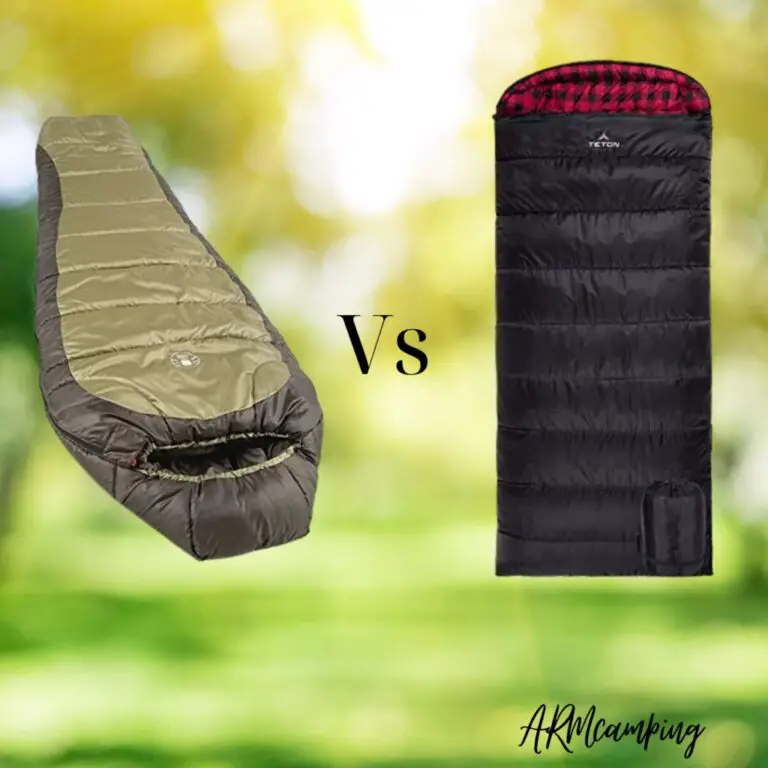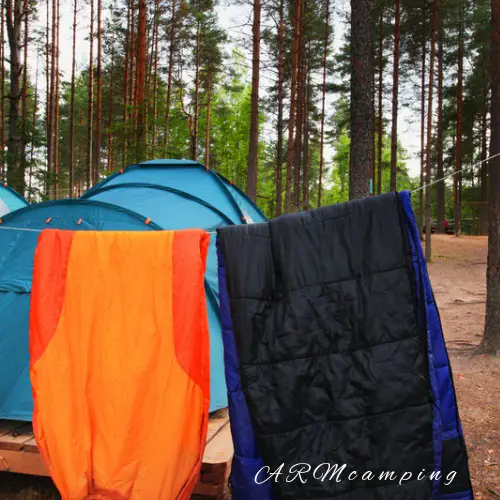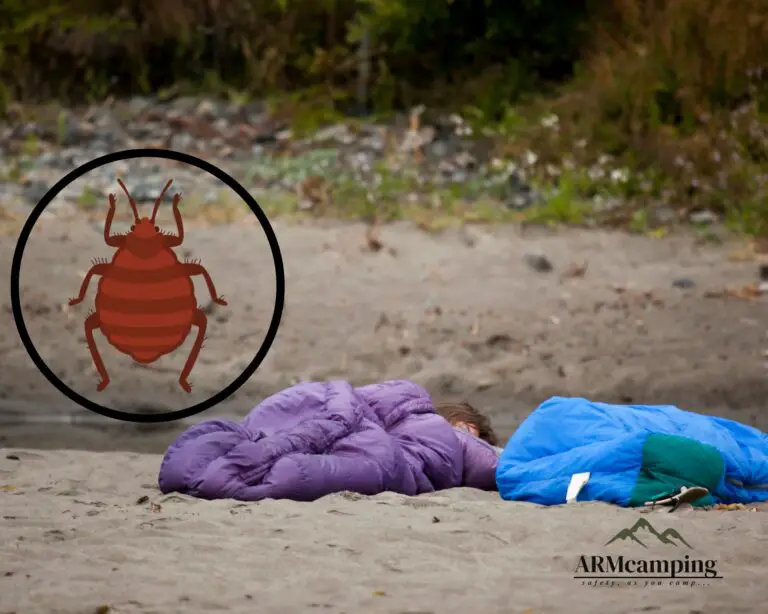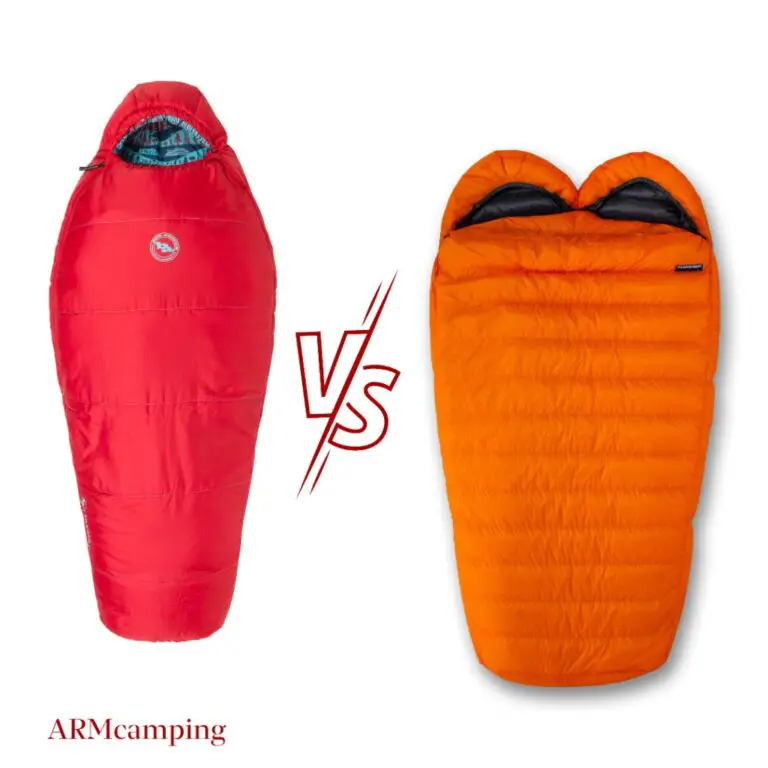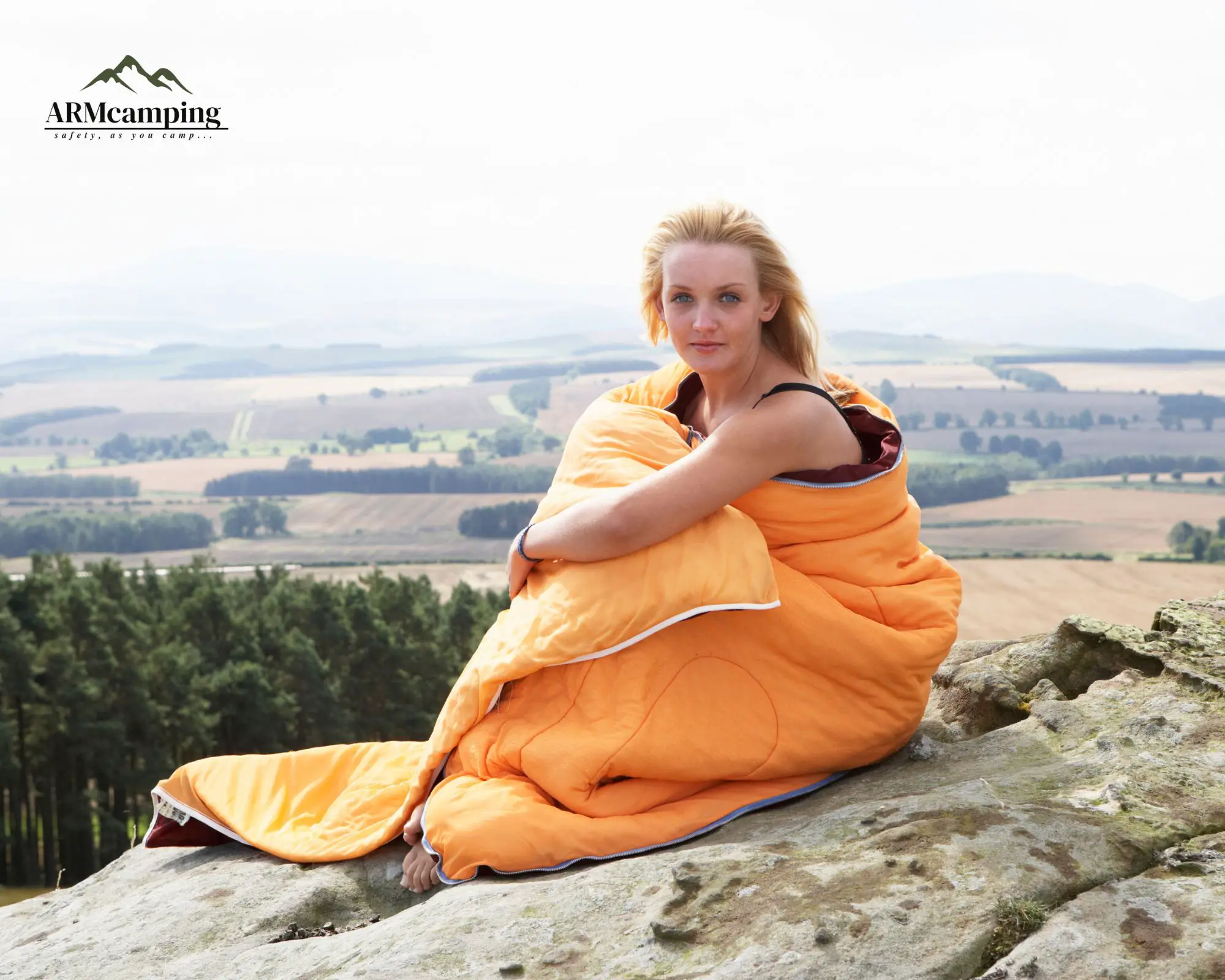
Can You Use a Winter Sleeping Bag in Warmer Weather?
Table of Contents
One of the great things about sleeping bags is that we can use them in a variety of weather conditions.
But can you use a cold-weather sleeping bag when it’s warmer out? The short answer is yes, but there are a few things to keep in mind.
Cold-weather sleeping bags are designed to keep you warm in temperatures below freezing.
So, if you’re using one in warmer weather, you’ll want to make sure that you ventilate the bag to prevent overheating. Additionally, you may want to consider a lighter-weight sleeping bag for warmer weather use.
Sleeping bags are typically categorized by temperature range, with “cold” weather sleeping bags being intended for use below freezing and “warm” weather sleeping bags being intended for use above freezing.
However, there is some flexibility in how you can use a cold-weather sleeping bag. If it is a particularly warm night, you can unzip the sleeping bag to ventilate it.
Additionally, if you are using a sleeping bag liner, you can often use a cold-weather sleeping bag in warmer weather by simply removing the liner.
Can You Use a Four-Season Sleeping Bag in Summer?
Yes, you can use a four-season sleeping bag in summer. However, you may find that it is too warm for comfortable sleeping. If you are planning on using your sleeping bag in summer, you may want to consider a three-season bag instead. Three-season bags are designed to be used in spring, summer, and fall. They are typically lighter weight and more breathable, making them more comfortable to sleep in during warm weather.
What Are the Benefits of Using a Cold-Rated Sleeping Bag in Summer?
There are some benefits to using a winter sleeping bag during the warmer months. With a winter bag you can use year-round you will save money, save storage space, and make packing before your camping trip much simpler no matter the season.
Having just one sleeping bag for use all year round will also make it easier to keep track of and maintain. Winter sleeping bags are typically made with more durable and weather-resistant materials, so you can rest assured knowing your bag will last through many seasons of use.
A cold-rated sleeping bag is not just for winter camping. In fact, there are several benefits to using a cold-rated sleeping bag in summer. Here are 7 benefits of using a cold-rated sleeping bag in summer:
- They will keep you cooler in summer weather.
- A cold-rated sleeping bag is more durable and will last longer.
- And it is less likely to rip or tear.
- Also, they are less likely to mildew or mold.
- A cold-rated sleep bag will provide more warmth if the weather unexpectedly turns cold.
- They are more comfortable in the humid summer weather.
- A cold-rated sleeping bag is less likely to get smelly in the summer heat.
What Are the Downsides of Using a Cold Rated Sleeping Bag in Summer?
If you are planning on hiking or camping in the summer months, it is best to avoid using a winter sleeping bag. Winter sleeping bags are much heavier than summer sleeping bags, and this can become a burden if you are carrying your camping gear over long distances.
Additionally, winter sleeping bags are not designed to ventilate well in warm weather, which can lead to discomfort or even heat exhaustion.
While a cold-rated sleeping bag may keep you comfortable in colder temperatures, it can be too warm for use in summer. Here are the potential downsides of using a cold-rated sleeping bag in summer:
- A cold-weather sleeping bag will be bulkier and less comfortable in warm weather.
- You may get too warm if you use a cold weather sleeping bag in warm weather, which can lead to dehydration.
- You may have difficulty sleeping due to the heat, which can lead to fatigue during the day.
- The sleeping bag may not fit in your backpack, forcing you to carry it separately.
Why Is Winter Sleeping Bag Different from Summer Sleeping Bag?
The main differences between the two types of sleeping bags are the weather and temperature. A winter bag is filled with a large amount of insulative material (synthetics or down) and its outer shell is much more durable and hard-wearing than a summer bag. The biggest similarity between both types is that they both have a zipper running along the side to allow the user to get in and out easily.
What Kind of Sleeping Bag Is Suitable for Summer?
When choosing a sleeping bag for summer camping, it is important to consider the temperature range you will be camping in.
For example, if you will be camping in temperatures above 65 degrees Fahrenheit, you will want a bag that is rated for at least that temperature.
However, if you will be camping in temperatures below 65 degrees Fahrenheit, you may want a bag that is rated for a lower temperature to stay comfortable.
Additionally, it is important to consider the weight and bulk of the bag. A summer sleeping bag should be lightweight and easy to pack, so you can enjoy your camping trip without being weighed down.
What Temperature-Rated Sleeping Bag Should I Get?
When backpacking in colder climates, you’ll want to make sure you have a warm sleeping bag. A 10° bag should be the minimum, but in most cases, you’ll want a 0° or lower bag. Make sure to check the temperature rating of the bag to be sure it will keep you warm enough.
In addition to a warm sleeping bag, you’ll also want to make sure you have a good sleeping pad. A good sleeping pad will insulate you from the cold ground and help you stay warm throughout the night.
Is a 40-Degree Sleeping Bag Good for Summer?
Yes, a 40 degree sleeping bag is good for summer. It is a good choice for those who are looking for a bag that is not too hot, but not too cold. This bag is also a good choice for those who are looking for a bag that is lightweight and easy to pack.
Finally
In conclusion, sleeping bags can trap heat and moisture against your body, keeping you warm. Sleeping bags don’t protect you from the cold, however; you still need to wear a hat, have proper layers on, and plan and dress for your activities.

